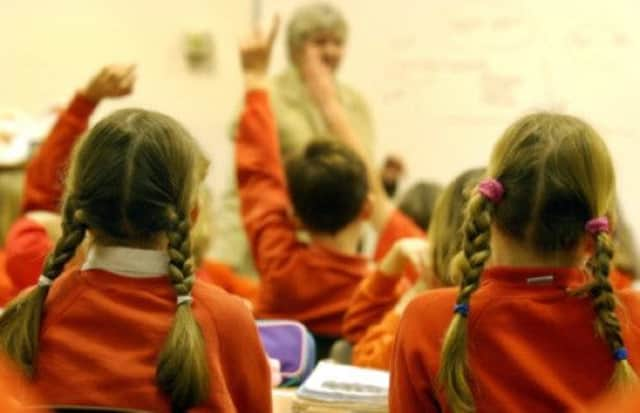Edinburgh headmaster calls for homework ban


But forcing children to do homework is “counter-productive” and should be banned, according to the headmaster of an Edinburgh private school.
Rod Grant, head of Clifton Hall School, said primary-aged children should be allowed to enjoy their time away from school without being made to carry out “meaningless” study by their parents.
Advertisement
Hide AdAdvertisement
Hide AdGrant, whose own school caters for 400 boys and girls aged between three and 18, conceded that evidence had shown homework can have a positive impact on attainment, particularly for older children.
However, he said he had yet to convince parents and many of his own staff that removing homework was in the best interests of younger pupils.
“Too many children, particularly those who live in book environments, are herded towards the homework table practically as soon as they get through their front doors; quickly followed by crying, gnashing of teeth and fighting with parents,” he said.
“Never have we made learning so unenjoyable as we do when we force children to work at the end of the school day. My six-year-old is not doing homework and he is a happy wee lad.
“Do we really believe that homework in primary school results in a greater likelihood of our five-year-olds ending up in a profession? Because I really do not.
“I am fortunate enough to be a headmaster and I absolutely love my job, but when I go home at night, I go home. I relax, I enjoy my family. I watch rubbish television and I do absolutely no homework whatsoever. And yet we expect our children to work at home.
“I believe it is a slavish response to what has become the expected norm. Let’s get rid of it altogether in primary schools and see it for what it actually is – a waste of family time.”
Many teachers privately admit their antipathy towards homework, but say they feel pressured by parents who expect their child to bring work home from class.
Advertisement
Hide AdAdvertisement
Hide AdLast year French president François Hollande suggested banning homework as part of a series of sweeping reforms to his country’s education system. He said scrapping work after school would make the system more equal for those whose parents are unable to help with their studies.
Another Edinburgh private school, Cargilfield, a prep school, stopped homework in 2004 and encourages its pupils to take part in clubs and activities at the end of the day.
Explaining his decision at the time, the school’s then headmaster John Elder said it would encourage pupils to become more responsible for what they choose to study away from school, while sparing parents the anguish of having to help their children with intricate problems they themselves barely comprehend.
But Ken Cunningham, general secretary of headmasters association School Leaders Scotland, said homework still had its uses, if done properly.
“Homework is really very peculiar to the circumstances of a youngster, a class and a school,” he said. “People automatically assume it’s a good thing in itself, but it isn’t unless it’s responsive to the youngster at the time.
“Homework for the sake of it is meaningless, but it can still be a useful way of encouraging parents to be involved in their children’s work.”
Tina Woolnough, of the National Parent Forum, added: “There are as many points of view on homework as there are parents. It’s a key communication tool, but it doesn’t have to be. There are other ways of letting parents know how a child is getting on.
“As a parent, I have seen all types of homework, from the relevant and the meaningful, to that which just ticks the boxes. I have also seen no homework at all at secondary school, which I raised concerns about. At primary school, homework can be a real intrusion on family life. When families are increasingly busy and relaxed family time is squeezed, you don’t want over-zealous amounts of homework which causes friction.”
Advertisement
Hide AdAdvertisement
Hide AdLast year a report carried out by the Institute of Education at the University of London and published by the Westminster government’s Department for Education concluded that homework could have a significant impact. However, the 15-year study, which tracked 3,000 children, found pupils needed to spend more than two hours a night to achieve better scores in English, maths and science. Previous research had shown only a “relatively modest” link between homework and achievement at secondary school.
The Scottish Government said research had shown younger children could benefit from homework involving simple literacy and numeracy tasks, while older children needed more structured study.
A spokeswoman said: “It is up to the local authority and individual schools what pupils take home. Any school work assigned to primary pupils would be at an appropriate level and would take account of the need to have a healthy balance of play, activity and learning opportunities.
She added: “Learning and achievement happens at home and in the community, as well as in nursery and school – homework that encourages independent learning can be very effective.”